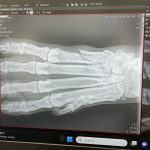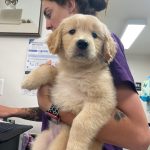Hello,
Please see your vet asap! This is an open wound and antibiotics and pain medication is needed asap. .
At my clinic the cost of an exam is about $50 and a topical antibiotic wash (we use our surgical prep wash) is about $20. Antibiotics and an analgesic can be prescribed via chewy for about $20 each if you ask for it this way.
You can also ask your vet to show you how to manage this so that it will not happen again.
Please see your vet asap. And open infected wound by the anus is something to be addressed. I understand this is a holiday weekend in the USA If your vet is closed then call an er and ask for help. In many cases IF the pet is acting normally (eating drinking and acting like their normal self) it might be able to wait until after the holiday, but the er also might be your best bet so she doesn’t have to wait days.
You can absolutely ask the er to be mindful of your budget. These cases for me are an exam and medications. These cases should not be costly anywhere. If you feel that they are not following your request to stay affordable come back to pawbly and let us know. And then see your vet on weds.
















I’d be looking for a veterinary neuro at this point. Did they at least help him relieve himself while he was there?
Not even. The excuse was that he would try to bite me but its my dog, I don’t care. So she never showed us how to do it. Thankfully yesterday, me and my mom carried him outside and tried to massage him again like we found online and he finally peed. he was so happy about it too!
I bet he felt a TON of relief!